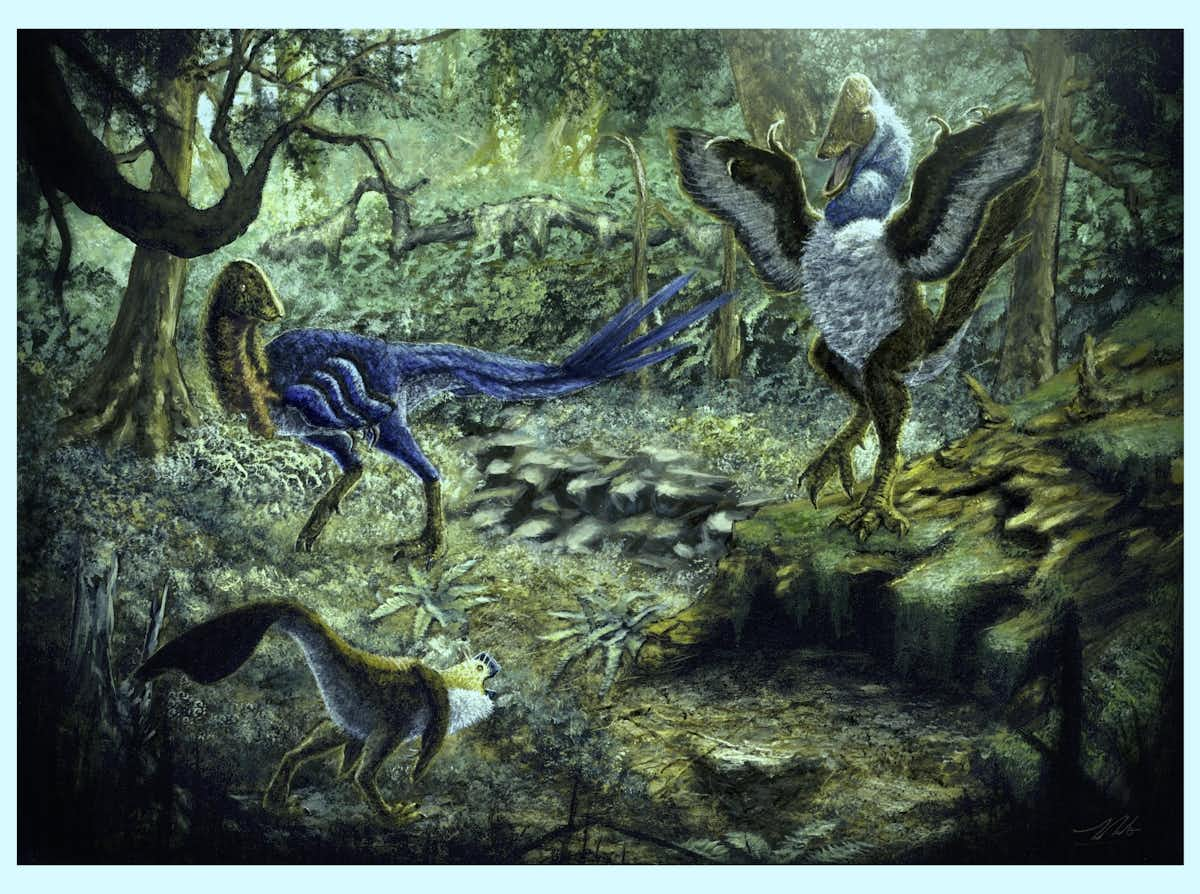A newly identified ‘Hell chicken’ species suggests dinosaurs weren’t sliding toward extinction before the fateful asteroid hit
" This was no juvenile. Instead, it was an adult of an entirely new species, which we dubbed Eoneophron infernalis. The name means “Pharaoh’s dawn chicken from Hell,” referencing the nickname of its larger cousin Anzu. Traits unique to this species include ankle bones fused to the tibia, and a well-developed ridge on one of its foot bones. These weren’t features a young Anzu would outgrow, but rather unique aspects of the smaller Eoneophron.
Expanding the caenagnathid family tree
With this new evidence, we started making thorough comparisons with other members of the family to determine where Eoneophron infernalis fit within the group.
It also inspired us to reexamine other bones previously believed to be Anzu, as we now knew that more caenagnathid dinosaurs lived in western North America during that time. One specimen, a partial foot bone smaller than our new specimen, appeared distinct from both Anzu and Eoneophron. Where once there was one “chicken from Hell,” now there were two, and evidence for a third: one large (Anzu), weighing as much as a grizzly bear, one medium (Eoneophron), humanlike in weight, and one small and yet unnamed, close in size to a German shepherd."
And for some related MOOCs:
https://imp.i384100.net/Nk3vDq


Comments
Post a Comment